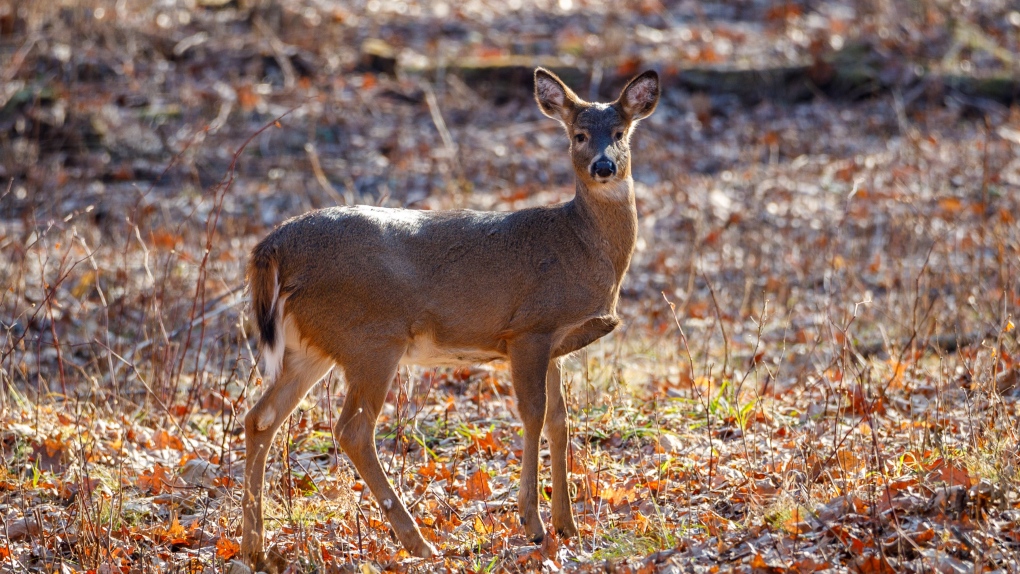Health officials have confirmed a fourth case of chronic wasting disease in B.C.’s Kootenay region, prompting calls for a swift cull to prevent further spread.
The latest case was detected in a white-tailed deer that was harvested by a hunter back in October, near the community of Cranbrook, according to the Ministry of Water, Land and Resource Stewardship.
While the government noted there is no “direct evidence” the disease can be transmitted to humans, officials reiterated Tuesday that eating the meat of an infected animal should be avoided.
“Cooking temperatures cannot destroy the abnormal protein that causes chronic wasting disease if an animal is infected,” the minister said in a news release.
B.C.’s first two cases of chronic wasting disease – sometimes knowns as “zombie deer” disease, due to the disturbing appearance of animals late in their infection – were confirmed by the Canadian Food Inspection Agency in January, and the third was confirmed in November.
The cases include “a hunter-harvested mule deer and two white-tailed deer, one of which was killed in a road accident and the other was harvested by a hunter,” according to the ministry.
All of the confirmed infections have come from deer found near Cranbrook, though the disease can also spread to other members of the cervid family, such as elk, moose and caribou.
More than 3,000 animal samples from the Kootenays have been sent for testing this year, which, given the small handful of confirmed infections, indicates a low disease prevalence, officials said.
“The province is gathering data to help guide decisions and reduce the risk of the disease spreading. These measures are supported by First Nations, stakeholders and the broader hunting community,” the ministry added.
Some have urged the government to undergo a cull as a precaution, including the B.C. Wildlife Federation, which said there are still hundreds of samples submitted by hunters in the province that are awaiting testing.
The group said deer living in and around communities such as Cranbook and nearby Kimberley at a higher risk of spreading the illness.
“City deer have a small range and relatively high density, living in close quarters with frequent contact, which makes them a perfect vector for disease,” said BCWF executive director Jesse Zeman, in a statement. “Because deer may contract the disease but remain symptom-free for months or years, urban deer pose a high risk of dispersing the pathogen.”
Infected animals exhibit symptoms such as weight loss, drooling, stumbling and poor co-ordination. Anyone who spots an animal that appears ill is urged to contact B.C.’s Report All Poachers and Polluters hotline at 1-877-952-7277.

